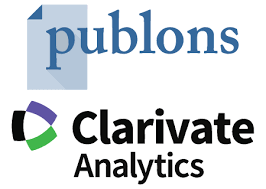The reality of HR performance assessment practices in Algeria.
Case of the Algeria Telecom company
DOI:
https://doi.org/10.59051/joaf.v12i1.368Keywords:
Evaluation, Theories, Performance, HRM, Algeria TelecomAbstract
Objective: understand the HR performance evaluation practices as well as the measurement criteria used during a personnel evaluation in the telecommunications sector through Actels agencies.
Method: The qualitative methodological approach adopted to instruct the research process took place in two stages. The first stage of the research consisted in observing and analyzing the practices that Actels agencies develop in terms of evaluation practices and in defining the realities they cover. The second stage looked at the statistical processing of the data collected, using the SPSS software.
Results: the statistical analysis of the data which was carried out shows a differentiation of HR performance evaluation practices (depending on the grade).
Originality / relevance: this contingent research is unique in that it has shown, through a statistical analysis of the data (Chi-square, SPSS), a differentiation in the evaluation of staff according to grade within the agencies of 'Algeria Telecom.
Downloads
References
- ASHTON M. C, 2014, « Psychologie de la personnalité et des différences individuelles », Bruxelles, De Boeck, 2ed.
- BACOUEL JENTJENS S, BRANDL J., 2015, «Cross-cultural responses to performance appraisals in Germany and France», International Journal Cross Cultural Management, vol. 10, n°3.
- BERGSTRÖM O., HASSELBLADH H, KARREMAN D, 2009, «Organizing disciplinary power in a knowledge organization», Scandinavian Journal of management, Vol. 25.
- BERNARDIN H. J., BEATTY R. W, 1984, Performance appraisal. Assessment Human Behavior at work, Boston, Kent Pub, Co.
- BESCOS, PL., MENDOZA C. (1994) « Le management de la performance « Paris, éd Comptables Malesherbes.
- BOLTANSKI L., THEVENOT L., 1991, De la justification. Les économies de la grandeur, Paris, Gallimard.
- BOUQUIN, H. (2001) : Le contrôle de gestion, presses universitaire de France, Paris, 5ème Edition.
- Bourguignion, A. (1995) « Peut-on définir la performance » Revue française de comptabilité, N°265, juillet-août, pp 61.66.
- BOUSSARD V, 2001, « Quand les règles s’incarnent. L’exemple des indicateurs prégnants », sociologie du travail, vol. 43, n°4.
- BOUSSARD V, 2008, Sociologie de la gestion. Les faiseurs de performance, Paris, Belin.
- CAUVIN et BESCOS (2004) « l’évaluation des performances dans les entreprises françaises. Une étude de empirique », actes de 25èmes congrès de l’association Française de comptabilité, Orléans, 12-14mai.
- CHANDLER A. D, 1962, Strategy and structure. Chapter in the History of the industrial Enterprise, Cambridge, MIT Press.
- CHARBONNIER-VOIRIN A., EL AKREMI A, 2016, l’influence de la personnalité proactive sur la performance adaptative, Revue de gestion des ressources humaines, n°3.
- CHIAPELLO E., GILBERT P, 2012, « les outils de gestion : producteurs et régulateurs de la violence psychique au travail ? », Le Travail humain, Vol. 75, n° 1.
- CLOT Y., SIMONET P, 2015, « Pouvoir d’agir et marges de manœuvre », Le travail humain, vol. 18, n°1.
- D.BESSIRE (1999) « Définir la performance » Comptabilité Contrôle Audit, T 5, vol 1, sept, PP 127-150.
- DANSOU K., LANGLEY A, 2012, «Institutional work and notion of test», Management, vol. 15, n°5.
- DEMING W. E, 1986, Out of the Crisis, Cambridge, MIT Press.
- DINESH D., PALMER E, 1998, «Management by objectives and the Balanced Scorecard, Management Decision», vol. 36, n°6.
- DRUCKER P. (1954), the practice of Management, New York, Harper Business.
- DUSTERHOFF C., CUNNINGHAM J., MACGREGOR J. N, 2014, «The effects of performance rating leader-member exchange, perceived utility, and organizational justice on performance appraisal satisfaction», Journal of Business Ethics, Vol. 119.
- EYMARD DUVERNAY F., 2008, Justesse et justice dans les recrutements, Formation emploi, n°101.
- EYMARD-DUVERNAY F., 2012, Epreuves d’évaluation et chômage, Toulouse, Octares.
- FOUCAULT M., 1975, Surveiller et punir. Naissance de la prison, Paris, Gallimard, Bibliothèque des histoires.
- GERNET I., DEJOURS C., 2009, évaluation du travail et reconnaissance», Nouvelle revue de psychosociologie, n°8.
- GILBERT P., YALENIOS J., 2017, L’évaluation de la performance individuelle, la découverte, paris.
- GOSSELIN A., MURPHY K., 1994, « l’échec de l’évaluation de la performance», Gestion, Vol. 19, n°3.Harvard Business Review, janvier-février, pp. 71-79.
- HUTEAU M., LAUTREY J., 2006, les tests d’intelligence, paris, la découverte, repère, nouvelle édition.
- KAPLAN, R.S., NORTON, D.P. (1992). The Balanced Scorecard — Measures that Drive Performance,
- KLINE T. J., SULSKY L. M., 2009, «Measurement and assessment issues in performance appraisal», Canadian Psychology, Vol. 50, n°3.
- LABERON S., LAGABRIELLE C., VONTHRON A. M., 2005, «Examen des pratiques d’évaluation en recrutement et en bilan de compétences», Psychologie du travail et des organisations, Vol. 11, n°1.
- LAURENT A, 1986, «The cross cultural puzzle of international human resource management», Human Resource Management, vol. 25, n°1.
- LAWRENCE T., SUDDABY P., LECA B., 2011, « Institutional work», Journal of management Inquiry, vol. 20, n° 1.
- LEMIERE S, 2006, Un salaire égal pour emploi de valeur comparable, Travail, genre et sociétés, n° 15.
- LEVY P. E., WILLIAMS J., 2004), «The social context of performance appraisal», journal of management, Vol. 30, n°6.
- LEVY P. E., WILLIAMS J., 2004, «The social context of performance appraisal», journal of management, Vol. 30, n°6, pp.881-905.
- LOCKE E. A., LATHAM G., 1990, A theory of Goal Setting and Task Performance, Englewood Cliffs, Prentice-Hall.
- LORINO Philippe (1997, 2001,2003), Méthodes et pratiques de la performance. Le pilotage par les processus et les compétences, 3ème édition, Editions d’organisation.
- MAIER N. R, 1958, «Three types of appraisal interviews», Personnel, Vol. 34.
- MCCLELLAND D, 1973, « testing for competence rather than for intelligence», American Psychologist, n° 28.
- MEYER J., ROWAN B, 1977, «institutionalized organizations», American Journal of sociology, vol. 83, n°2.
- Murphy K., CLEVLAND J. N, 1991, Performance Appraisal. An Organizational Perspective, Needham Heights, Allyn Bacon.
- NIZET J., PICHAULT F, 2015, Les critiques de la gestion, Paris, La découverte Repères.
- O.De la Villarmois (1998) « le concept de performance et sa mesure », Actes des XIV journées des I.A.E, Mantes, T 2, vol2 .PP155-216.
- ODIORNE G. S, 1965, Management by Objectives, New York, Pitman Pub. Corp.
- PAGES M., BONETTI M., GAULEJAC V., DESCENDRE D., 1979, l’emprise de l’organisation, paris, PUF.
- PAIK Y., VANCE C. M., STAGE H. D. A., 2000, «test of assumed cluster homogeneity for performance appraisal management», International Journal of Human Resource Management, vol. 11, n° 4.
- PERETZ H., FRIED Y, 2012, «National culture, performance appraisal practices, and organizational absenteeism and turnover», Journal of Applied Psychology, vol. 97. n° 2.
- PICHLER S, 2012, «The social context of performance appraisal and appraisal reactions: a meta-analysis», Human Resource Management, vol. 51, n°5.
- REUCHLIN M, 1997, la psychologie différentielle, paris.
- S-AINT-ONGE S., HAINES V, 2007, Gestion des performances au travail, Bruxelles, De Boeck.
- SEDDON J, 1987, «Assumptions, culture and performance appraisal», Journal of management Developpement, vol. 6, n° 3.
- SEHILI D, 2002, Ethiques et inégalités, Des avatars récurrents dans la job évaluation, cahiers du genre, n°1.
- SPENCER S. M, 1993, competence at work, Models for performance, New York, Wiley and sons.
- STERNBERG R. J., WAGNER R. K., WILLIAMS W. M. et HORVATH J. A, 1995, «Testing common sense», American Psychologist, Vol. 50, n°11, p.912-927.
- TAPERNOUX F, 1984, Les Centres d’évaluation. Une méthode de sélection et d’évaluation des cadres ? Présentation et Comparaison d’expériences faites en Amérique du Nord et en Europe, Payot.
- THORNTON G. C., BYHAM W. C, 1982, Assessment Centers and Managerial Performance, New York, Academic press.
- TOWNLEY B, 1993a, Foucault, power/ Knowledge, «and its relevance for human resource management, Academy of management review, Vol. 18, n°3.
- TOWNLEY B, 1993b, «Performance Appraisal and the emergence of management», Journal of management Studies, Vol. 30, n°2.
- TOWNLEY B, 1996, «Accounting in detail: accounting for individual performance», Critical perspectives on Accounting, vol. 7, n°5.
- TOWNLEY B, 1999, «Practical reason and performance appraisal, Journal of Management Studies, vol. 36, n°3.
- VIDAILLET B, 2013, Evaluez moi ! Évaluation au travail : les ressorts d’une fascination, Paris, Seuil.
Downloads
Published
How to Cite
Issue
Section
License
Copyright (c) 2021 akila RACHEDI

This work is licensed under a Creative Commons Attribution-NonCommercial-NoDerivatives 4.0 International License.
Authors who publish with this journal agree to the following terms:
- Authors retain copyright and grant the journal right of first publication with the work simultaneously licensed under a Creative Commons Attribution License that allows others to share the work with an acknowledgement of the work's authorship and initial publication in this journal.
- Authors are able to enter into separate, additional contractual arrangements for the non-exclusive distribution of the journal's published version of the work (e.g., post it to an institutional repository or publish it in a book), with an acknowledgement of its initial publication in this journal.
- Authors are permitted and encouraged to post their work online (e.g., in institutional repositories or on their website) prior to and during the submission process, as it can lead to productive exchanges, as well as earlier and greater citation of published work (See The Effect of Open Access).






















